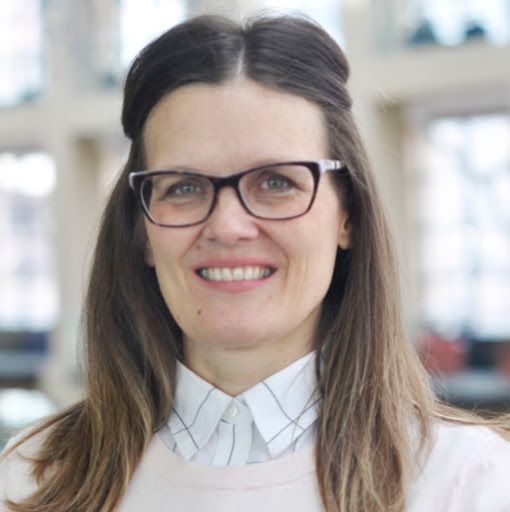Strategic Planning in a Deeply Weird World: The Flexible Roadmap Field Guide Approach
Join us to learn about Salt Lake City Public Library's new ground-breaking approach to strategic planning, focused on human-centered service design.
This event has passed.
It's a big task to define the library’s future over the next three or five years, and strategic planning is becoming less and less effective in a rapidly changing world. The Salt Lake City Public Library (SLCPL) has created a new approach that is flexible, staff-driven, and human-centered. SCLPL's Strategic Roadmap is not a 100-page plan in a binder-on-a-shelf; it’s an experiential learning tool that invites all staff to participate in the co-creation of meaningful outcomes and experiences for the community. The Roadmap focuses less on planning and more on building capacity of staff to adopt a human-centered service design mindset and skillset. SLCPL staff are adopting a new perspective, continually experimenting with and adapting spaces, collections, services, programs, and their own roles, to responsively address community needs and aspirations in an ever-changing landscape. Join us for this webinar to learn how to cultivate new skills to help bring the Roadmap to life for your library’s strategic planning.
Presented by: Peter Bromberg, Executive Director, and Marilee Moon, Assistant Director of Customer Experience, at Salt Lake City Public Library
Tweet: #wjwebinar
Access Recording
- View Webinar Recording (You will be prompted to login to our free Course Catalog.)
Webinar Attachments
- View slides (pdf)
- View chat (xls)
- View captions (txt)
- Learner Guide (doc) Use alone or with others to extend your learning.
- NEW: Additional presenter responses to chat questions (doc)
Related Resources and Links
- SCLPL’s Files via Dropbox as PDF files:
- To learn more about service design, see Orchestrating Experiences: Collaborative Design for Complexity, by Patrick Quattlebaum and Chris Risdon
- Strategic Superpower: Lessons from Salt Lake's New "Roadmap" in Library Journal
- Forward to the Age of Scale, by Michael Edson
- Explore Community Discovery Tools (pdf), collected by WebJunction
- Additional response to chat question:
- “Every time we do traditional strategic planning, I say something like, “Alternatively, we could address the issues we see in front of us right now.” The response is usually along the lines of, “That’s reactive, not strategic.” What do you think?” Peter responded: I believe our approach helps us understand "what is in front of us right now" -- i.e. it helps us understand the "in-real-time" aspirations, needs, challenges of our patrons, our partners, and our community at both micro and macro levels. We are not "reacting," we are responding to those needs. The choice to learn service design and incorporate ongoing "paying attention" behaviors such as intercepts, interviews, community meetings, etc., allows us to continually recalibrate and realign to the rapidly shifting reality of our community's needs, aspirations, and challenges. I think "reacting" is exactly what organizations end up doing when they DON'T pay this type of continual attention. Our approach is designed to rewire our collective organizational mind and practice to pay continual attention, and continually realign, experiment, and learn; to be an "adaptive organism."
Date
26 March 2019
Time
3:00 PM – 4:00 PM
Eastern Daylight Time, North America [UTC -4]
Venue
Webinar

Webinar presenter Marilee Moon

Webinar presenter Peter Bromberg
Upcoming Webinars
03 March 2026
Programming with Your Library of Things
19 March 2026
Navigating Misinformation in One-on-One Patron Interactions
07 April 2026
